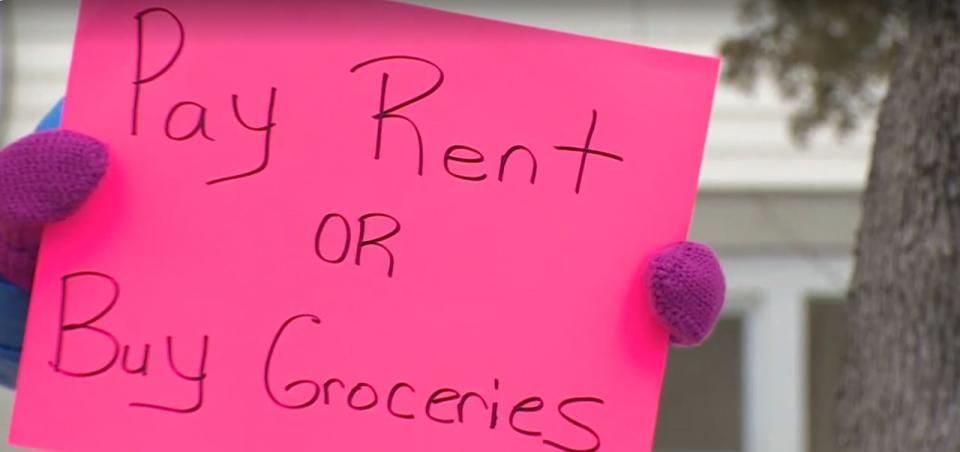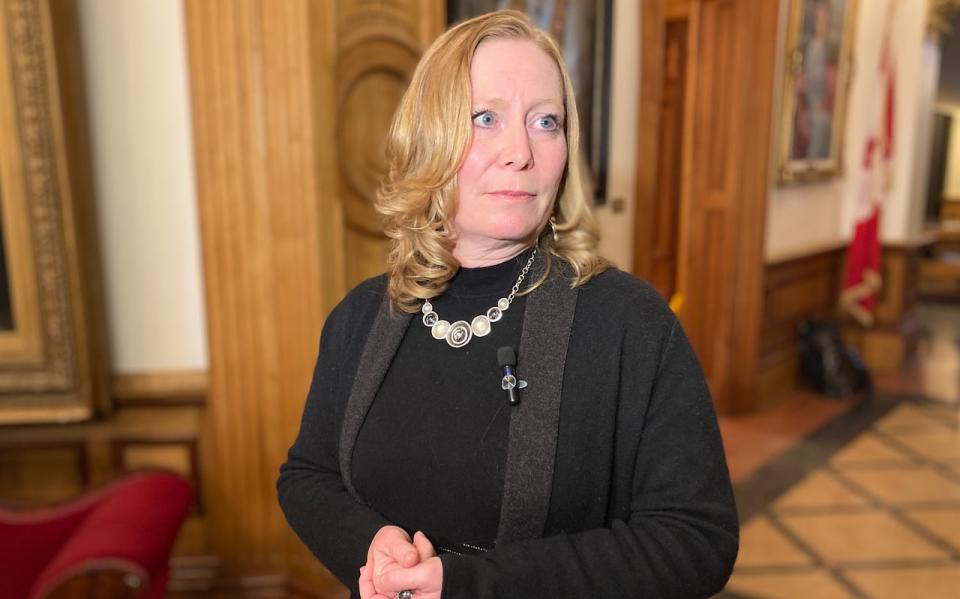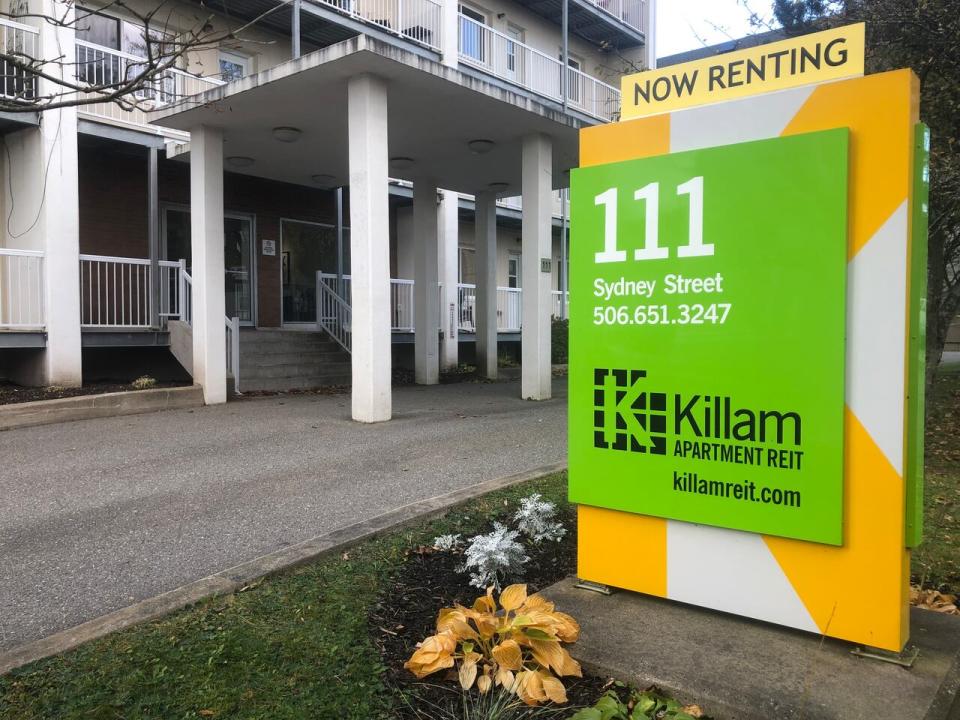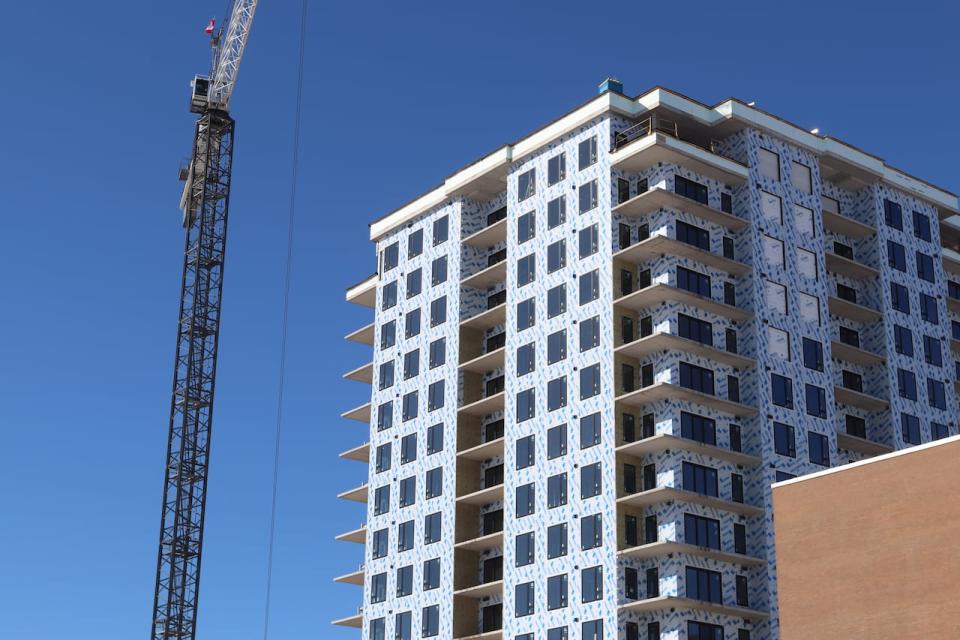Rents in New Brunswick increasing 4 times faster than target set by province

Ten months after the New Brunswick government unveiled a plan to rein in high rent increases in the province for tenants, figures show the escalation has been worsening, not improving.
That is adding pressure on the province to attack the issue more aggressively, with New Brunswick's minister in charge of housing already acknowledging measures taken so far to combat rising rents are not helping tenants enough.
"We are discussing everything related to rent," Housing Minister Jill Green said in the legislature last week.
"There continues to be more options and things that we're looking at."

New Brunswick's Housing Minister Jill Green told MLAs last week a number of initiatives are under consideration to deal with New Brunswick's rent troubles. (Jacques Poitras/CBC)
Green was responding to a report earlier this month that new housing starts in New Brunswick, especially new apartment building developments, were not hitting provincial targets and lagging well behind projects under construction in Nova Scotia and Prince Edward Island.
More bad news followed this week.
On Tuesday, Statistics Canada reported that average rents in New Brunswick in April were up 10.8 per cent from one year earlier.
That is the second-largest increase among provinces, behind Alberta, over the 12-month period and triple New Brunswick's overall rate of inflation of 2.9 per cent.
It is also the most rapid escalation in rent that tenants have experienced during the province's four-year-old housing crisis.
Rents in New Brunswick increased 6.9 per cent during the previous 12 months, ending in April 2023, and by 7.3 per cent and 6.1 per cent in the two years before that.
Last summer Green unveiled New Brunswick's housing strategy, which included a goal of lowering annual rent increases in the province to "an average of 2.5 per cent."
Instead they have risen to four times that level.

New Brunswick's largest landlord, Killam, reported the average rents on its 997 apartments in Saint John were up 8.9 per cent in March over the previous March. It was the largest increase in a Canadian city reported by the company, outside of Calgary. (Robert Jones/CBC News)
On Tuesday a series of questions to the province about why rent increases in New Brunswick are higher than most provinces, and what the province might do to reverse that, went unanswered.
In an email, a spokesperson wrote "more time" was needed for a response.
Despite that, Green has suggested she is open to any potential solution to soaring rents, including solutions the province has consistently rejected in the past, such as the cancellation of sales taxes on newly constructed apartment buildings.
Two weeks ago New Brunswick's Department of Finance said it did not support a sales tax holiday on the construction of new apartment buildings, even though Prince Edward Island and Nova Scotia both adopted the policy last fall and earlier this year reported new apartment starts at triple the rate of New Brunswick.
"Following some analysis by government, it still isn't clear that rebating the provincial portion of the HST for real estate developers of purpose-built rental properties would result in benefits to tenants," the department said in a statement.

New Brunswick has consistently argued that building more apartment units is the answer to rising rental costs. However, the pace of development in New Brunswick has been below its own targets and well behind Prince Edward Island and Nova Scotia. (Alexandre Silberman/CBC)
However, last week Green said New Brunswick needs more housing development and if cutting sales taxes will produce that, she will seriously consider the idea.
"It's not off the table yet," she told reporters.
"We're looking at a number of different measures."
New Brunswick has consistently argued that the solution to escalating rents is to build enough new housing to re-balance supply and demand. It set a goal of producing 6,000 new housing starts per year, but has been unable to reach that number.
In 2023 it posted 4,547 new housing starts. That was the lowest rate per capita among the three Maritime provinces and a three-per-cent decline from 2022.

